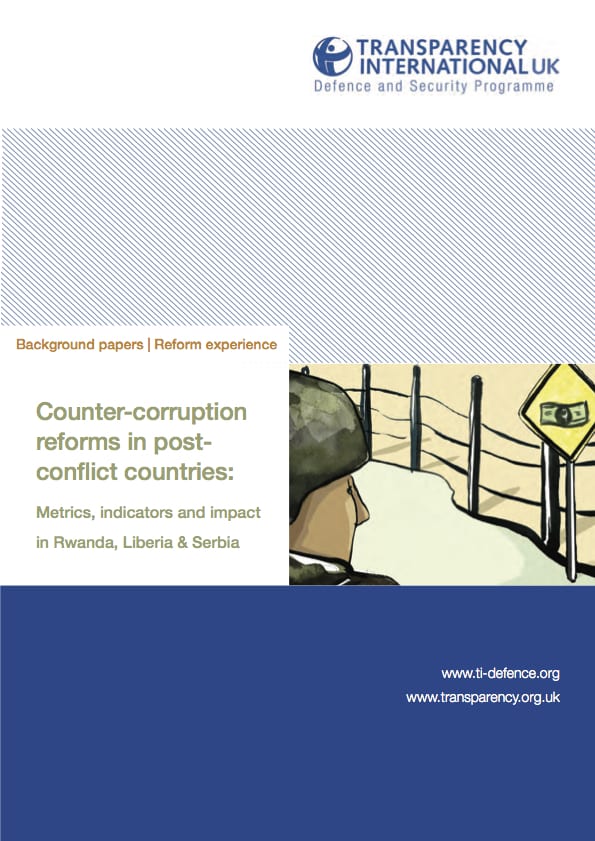Counter corruption reform in post-conflict countries
This report provides a review of the available literature on the challenges faced by three post-conflict countries in their attempts to combat corruption: Rwanda, Liberia and Serbia. It concludes that a combination of thorough legislation, institution-building, training and education programmes, rationalisation measures and decentralisation policies have aided countries in reducing corruption. However, the particular measures undertaken by individual governments must of course mirror the exact and unique challenges it faces. Each country must choose those mechanisms which will help it address its unique social, cultural, and institutional barriers.
Download Publication as PDF
Relevant Publications
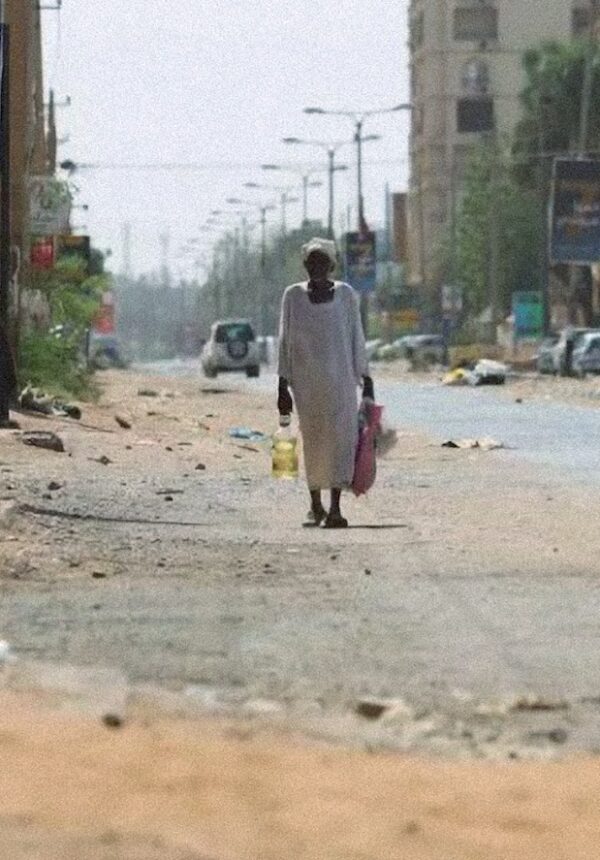 Le Dénominateur Commum: Dans quelle mesure la corruption au sein du secteur de la sécurité alimente-t-elle l’insécurité en Afrique de l’Ouest?
Le Dénominateur Commum: Dans quelle mesure la corruption au sein du secteur de la sécurité alimente-t-elle l’insécurité en Afrique de l’Ouest?
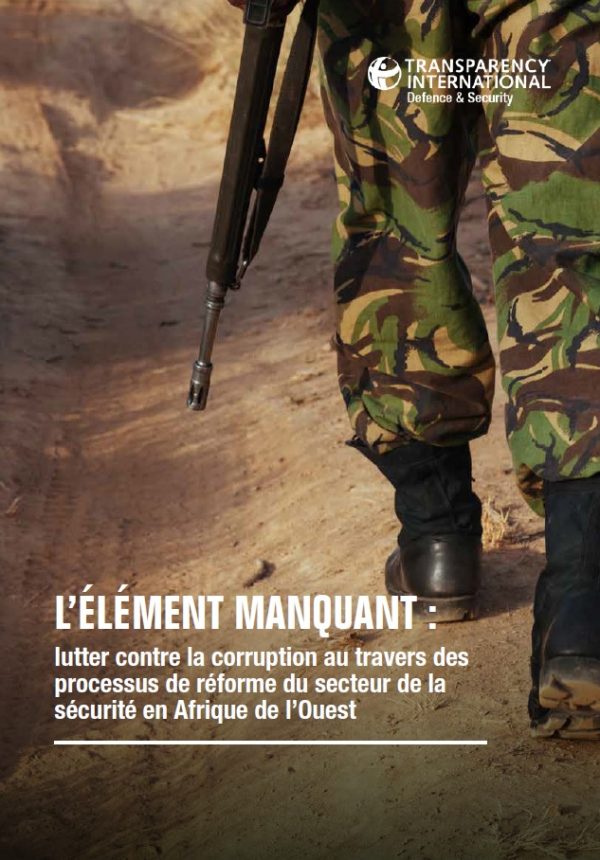 L’Elément Manquant: lutter contre la corruption au travers des processus de réforme du secteur de la sécurité en Afrique de l’Ouest
L’Elément Manquant: lutter contre la corruption au travers des processus de réforme du secteur de la sécurité en Afrique de l’Ouest
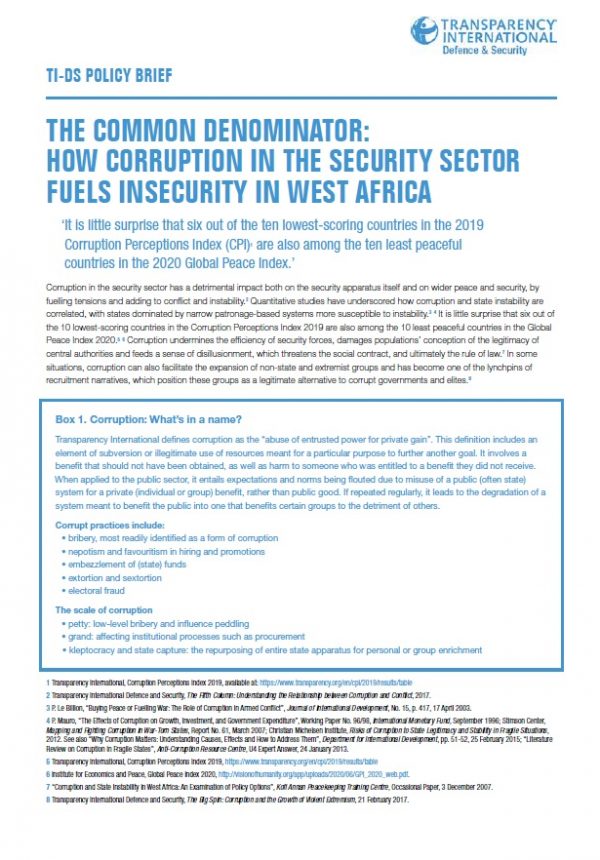 The Common Denominator: How Corruption in the Security Sector Fuels Insecurity in West Africa
The Common Denominator: How Corruption in the Security Sector Fuels Insecurity in West Africa
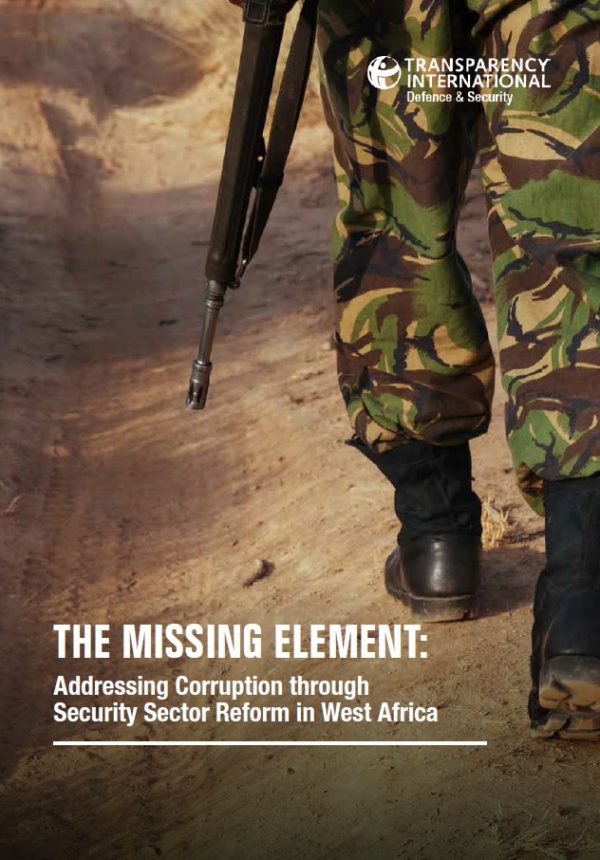 The Missing Element: Addressing Corruption through Security Sector Reform in West Africa
The Missing Element: Addressing Corruption through Security Sector Reform in West Africa
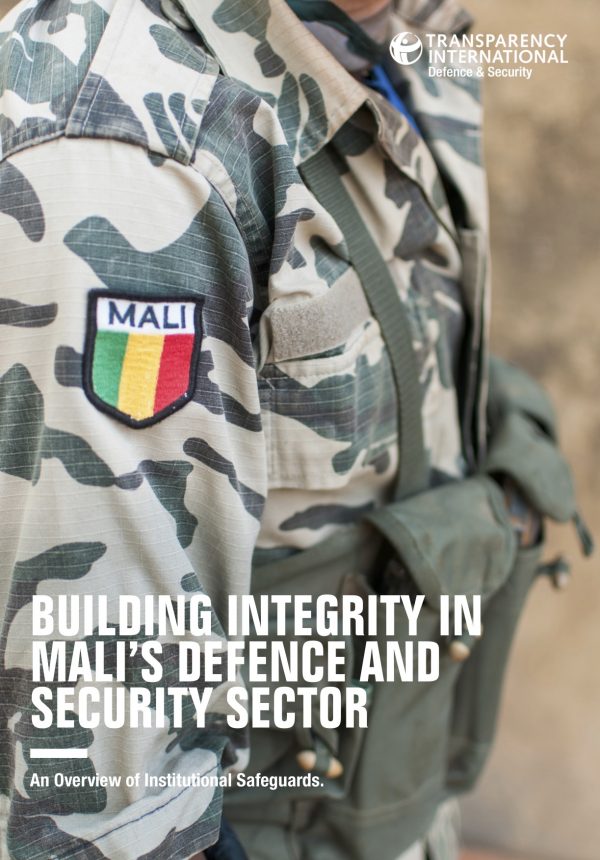 Building Integrity in Mali’s Defence and Security Sector
Building Integrity in Mali’s Defence and Security Sector
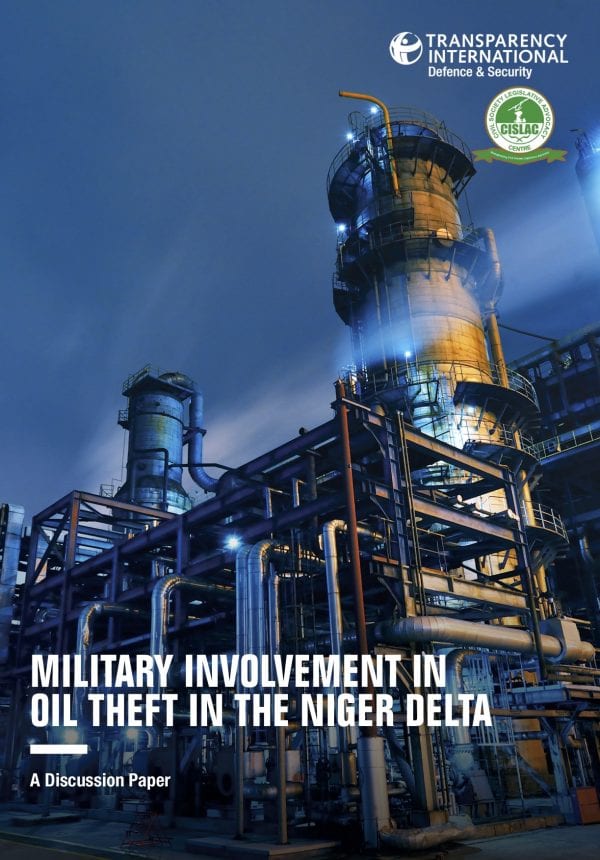 Military Involvement in Oil Theft in the Niger Delta
Military Involvement in Oil Theft in the Niger Delta
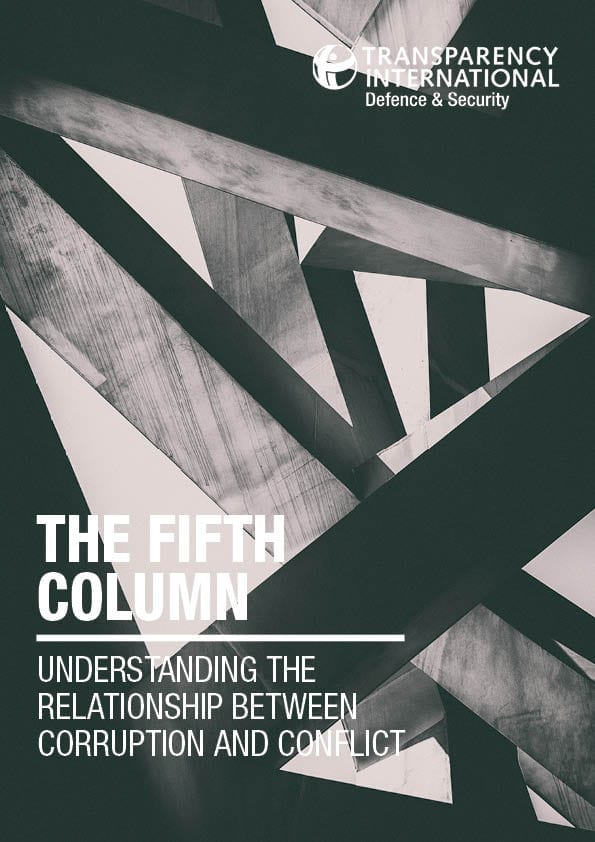 The Fifth Column: Understanding the Relationship Between Corruption and Conflict
The Fifth Column: Understanding the Relationship Between Corruption and Conflict
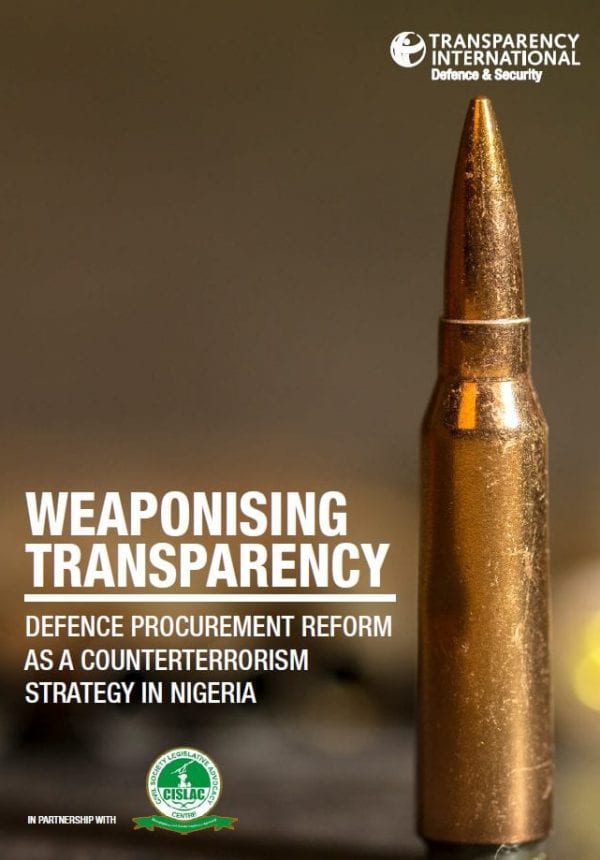 Weaponising Transparency: Defence Procurement Reform as a Counterterrorism Strategy in Nigeria
Weaponising Transparency: Defence Procurement Reform as a Counterterrorism Strategy in Nigeria










